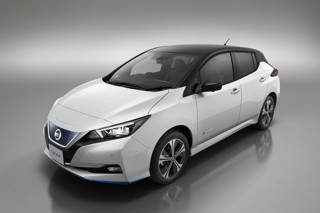Fleets should press the Treasury to scrap the 4% diesel surcharge next year to mitigate the impact of the new emissions testing regime on tax, says TMC.
HM Treasury is seeking ideas for a “simple” adjustment to Vehicle Excise Duty (VED) and company car tax to offset unexpectedly higher CO2 emission readings under the Worldwide harmonised Light vehicle Test Procedure (WLTP).
The fleet industry is being asked to respond to a series of questions around whether vehicle tax changes are required once WLTP is adopted for tax purposes from April 2020.
Paul Hollick, managing director of TMC, said that removing the surcharge would not only meet the Government’s desire for a simple way to rectify the imbalance in company car tax but it would also reflect real-world cost constraints and restore badly-needed confidence to the UK’s hard-hit new car market.
The Government originally committed to scrap the surcharge in 2016. But it retained, and later increased, it in the face of an anti-diesel backlash by the media over the emissions scandal.
Hollick said that stricter emissions testing has largely solved those problems. Therefore, persisting with the surcharge – especially at double the 2016 level – is unjustified.
He explained: “The Government is already under fire from its own business advisors for not bringing forward 2% BIK for pure EVs to help the economy and the environment.
“We believe fleets can now make a very strong case that the Government can at least solve its unanticipated problem with WLTP by removing the diesel BIK surcharge at the first opportunity.
“Today’s new fleet diesel cars emit 55 times fewer particulates and nearly seven times less NOx than those being operated when the diesel surcharge was first brought in. The reality is that the surcharge was there to incentivise cleaner diesels and it has already gone a long way to achieving that goal.
“There seems no justification for holding on to it until Real Driving Emissions-certified models begin to trickle on to the market in future, especially when the Government’s own guidelines for clean air zones exempt all current Euro 6 cars from toxicity charges.”
Hollick continued: “It seems quite clear that the Government didn’t appreciate how much of an additional burden WLTP and correlated NEDC would impose on company car taxpayers.
“Removing the surcharge at the earliest opportunity (April 2020) would rectify that mistake as well as meeting the Treasury’s desire for a simple adjustment to the BIK scales.”
TMC’s submission to the Treasury will include data showing that is unrealistic to expect companies to simply drop diesels from their fleets.
Analysis carried out in December on a sample of nearly 20,000 cars out of more than 120,000 live vehicles on TMC’s fuel and mileage capture database shows that 97% are diesels. Average real-world fuel economy for diesel and petrol cars has improved slightly over the last few years, by 6% for diesels and 2% for petrol.
But petrol cars still cost fleets 10-20% more in fuel than diesel models, depending on the price differential at the fuel pump. Petrol cars also typically impose higher tax on both driver and employers because they emit more CO2.
The Government’s review of WLTP and VED closes on February 17.























Login to comment
Comments
No comments have been made yet.